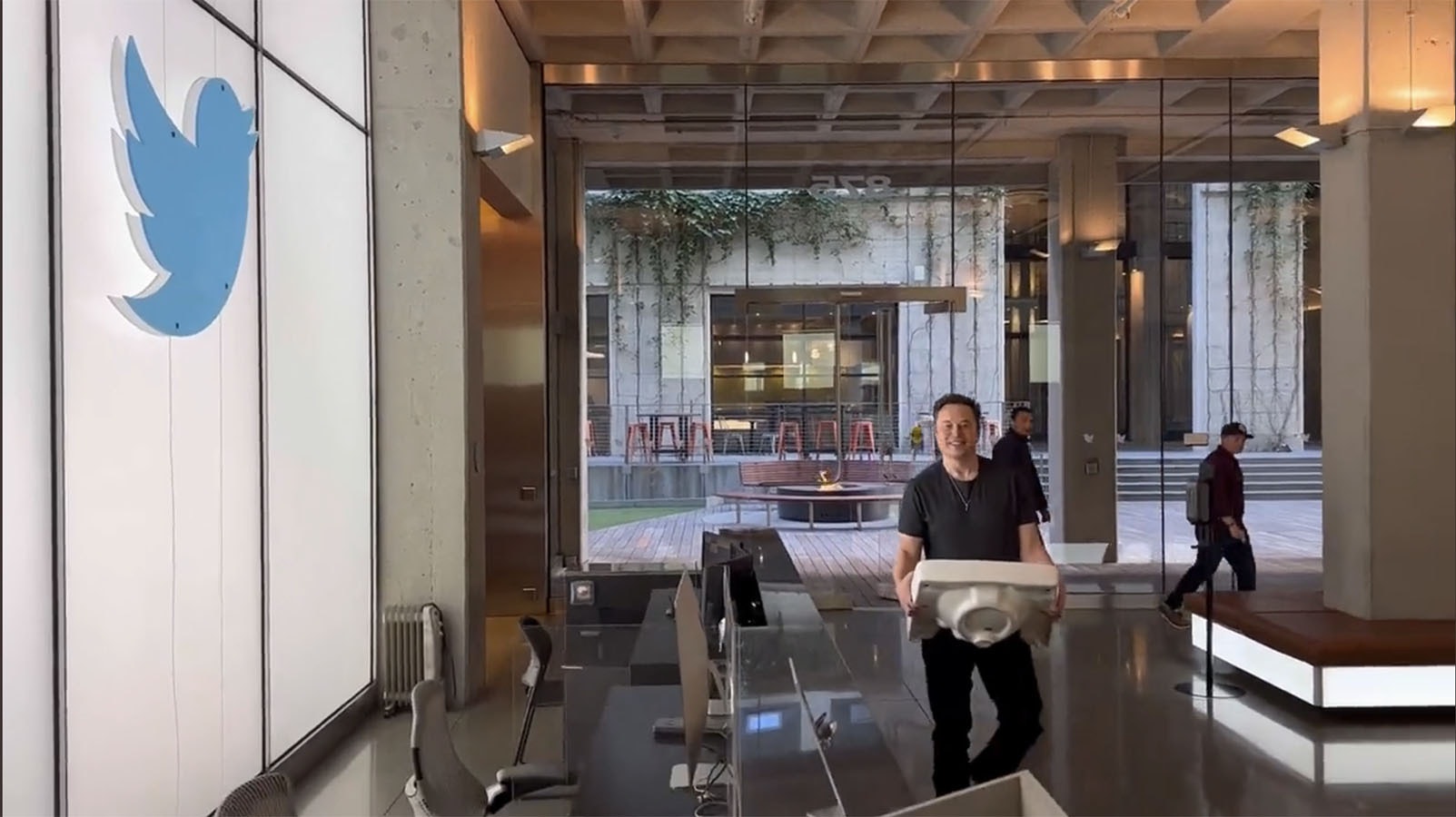Some Twitter users are gloating, others are outraged. People are posting about Ivermectin and using natal-sex pronouns. Ben Shapiro gained 40,000 followers in one day.
The Twitter of Friday morning wouldn’t recognize its Thursday self.
Elon Musk, innovator and world’s richest man, bought the tech giant in a sale that was official Thursday, The Wall Street Journal reported. The purchase is due to be final Friday afternoon.
Musk has pledged to change the site’s content algorithm to allow “free speech,” a hotly contested term in today’s Internet communications realm, as tech giants are tasked with the burden of censoring pornography and calls to violence.
‘Viewpoint Discrimination’
Private corporations generally aren’t required to uphold free speech protections, as the government is. That’s certainly true in Wyoming, where last year, the Legislature’s House Judiciary Committee shut down a bill that would have ushered in civil penalties for each instance of tech-giant “viewpoint discrimination.”
A year later, state Rep. Dan Zwonitzer, R-Cheyenne, who voted against the viewpoint discrimination bill, said people should be cautious of both Musk and future legislation governing communications sites.
“It’s dangerous for any one person to be able to control that large of a media presence,” said Zwonitzer, noting that the company was publicly owned and board-run before Musk’s $44 billion takeover. Twitter had to answer to board members and investors, and while it wasn’t perfect, it “did its best.”
With just one man in control, there’s a heightened possibility of fickle changes, Zwonitzer said.
“We’ll hope that Twitter doesn’t limit speech or opinions,” he said. “It’s always a delicate operation of what’s free speech and what’s hate speech, and what regulation, if any, you put on other people’s speech.”
A free-market proponent, Zwonitzer said he hopes that if there is discrimination by one communications site, others will rise to compete with it. This, he said, is a better solution to censorship by a private company than any state or federal legislation.
“I don’t think (legislative) regulation of free speech is ever necessarily a good idea,” he said. “I think everyone should take a wait-and-see approach – to separate where we are in six months from (Musk’s) antics right now.”
Zwonitzer said that Musk’s “antics” may be distracting from the uncertainty of the future at Twitter and in public discourse generally.
‘Atlas Shrugged Character and a Bond Villain’
The saga of Musk’s Twitter purchase has had no shortage of antics, including a back-and-forth argument between Musk and Twitter about just how many of the struggling site’s users are “bots,” or not human.
Musk posted a video of himself Thursday lugging a porcelain kitchen sink into the Twitter headquarters, with the caption “Entering Twitter HQ – let that sink in!”
“The fact that Elon Musk is somewhere between an Atlas Shrugged character and a Bond villain is really one of the great things about American economic life these days,” quipped DailyWire former editor Ben Shapiro on his YouTube episode recounting the event.
Hageman Eyes Legislation
Sen. Cheri Steinmetz, R-Lingle, drafted the viewpoint discrimination bill that Zwonitzer and other committee members voted down last year.
A key speaker in favor of Steinmetz’s bill at the time was Harriet Hageman, who is now the Republican nominee for the state’s lone U.S. House seat.
Hageman this spring told Cowboy State Daily that she now will look to federal legislation to limit viewpoint discrimination in tech giants.
Both Hageman and Steinmetz – like Zwonitzer – expressed some hesitance to trust that Musk or any one owner will unwaveringly defend free speech. But Steinmetz was optimistic.
“I applaud anyone who will protect the arena of free speech,” said Steinmetz. “So long as (Musk is) walking down that pathway, it’s a good thing.”
Unlike Zwonitzer, however, Steinmetz said she agrees with Hageman that federal legislation could be the answer to future censorship by Twitter and other tech giants. She said legislation could protect people on both sides of the political spectrum.
“Unfortunately, overreach in that area is not confined to one person or political ideology,” she said. “The risk is there, regardless of who owns the company, and it should be a law that protects everyone, all of the time, regardless (of political ideology).”
When Steinmetz presented her bill last year, its detractors said they feared that communications companies would be afraid to stifle actual violence for fear of incurring civil fines.
Steinmetz told Cowboy State Daily on Friday that the companies need merely to follow whatever anti-threatening or anti-violence laws are already in place, rather than produce their own standards.
“These things have sprung up so quickly that there’s no legal framework for them,” she said. “It’s just a new sector of society and when things spring up that quickly, government reacts slowly – which is good in a lot of ways.”





